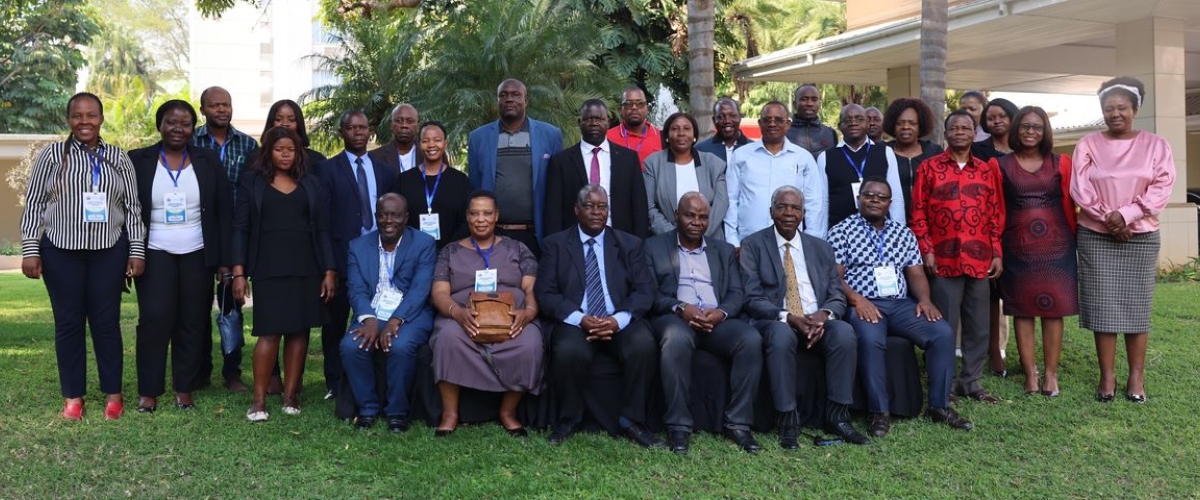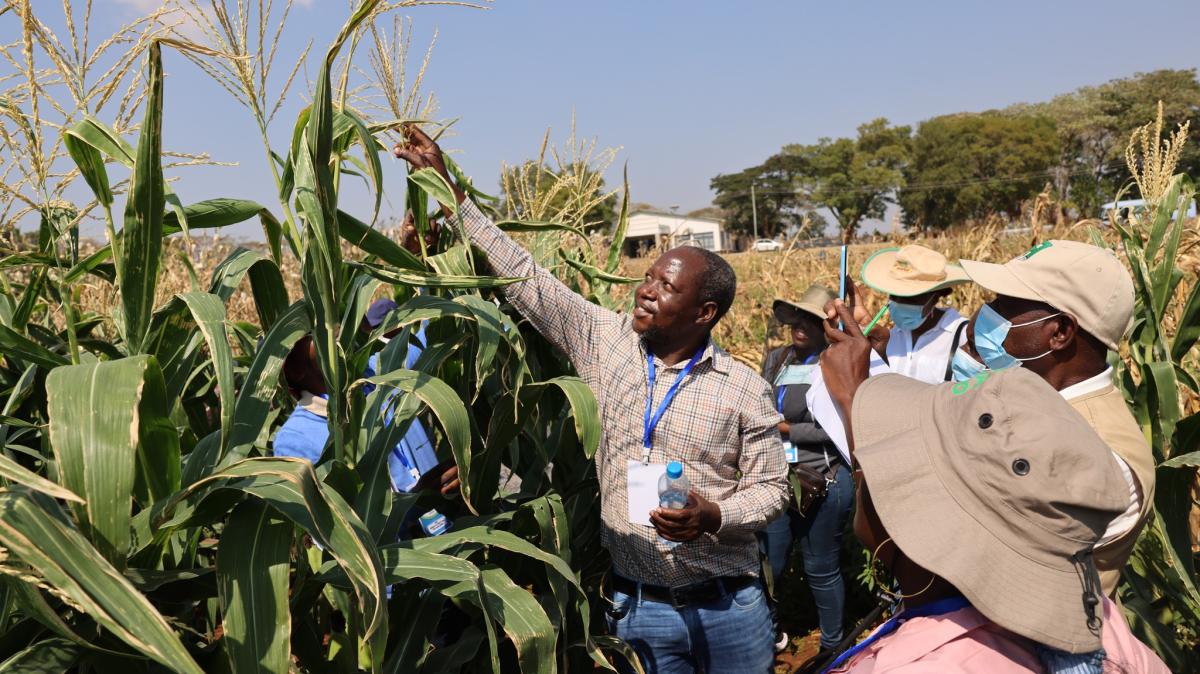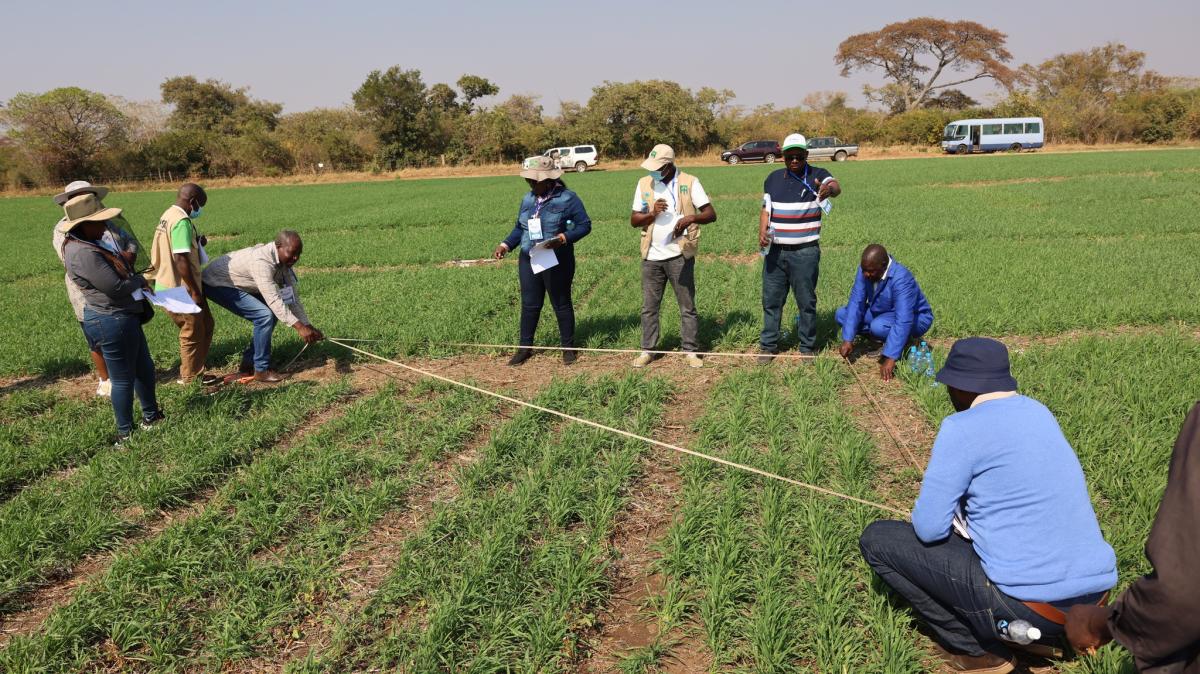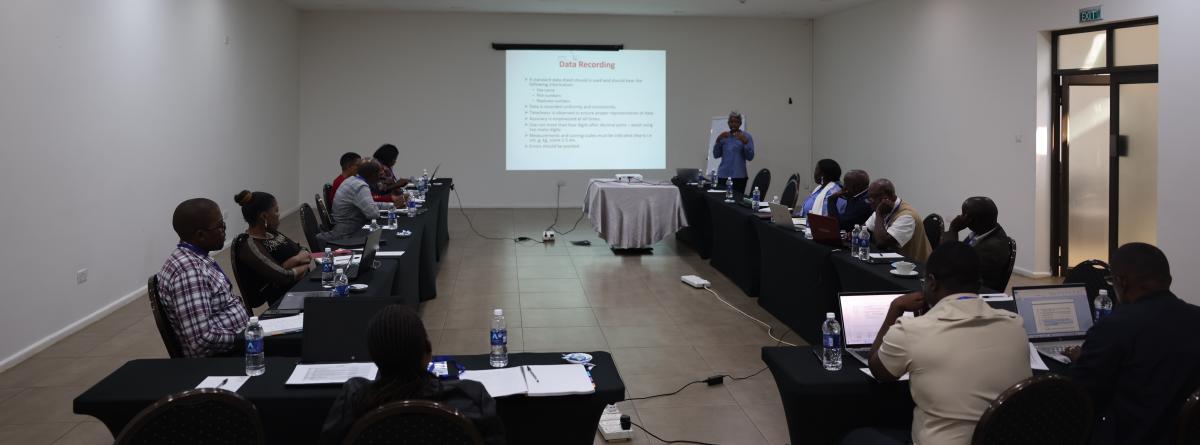
The Centre for Coordination of Agricultural Research and Development for Southern Africa (CCARDESA), in collaboration with Zambia’s Seed Control and Certification Institute (SCCI), facilitated a learning visit and training of Angola and Lesotho delegates on the processes of establishing National Variety Release Committees, their functions, composition, and the requirements for the scientists to apply and release a new technology. The initiative was supported through the Agricultural Productivity Programme for Southern Africa (APPSA), from 3rd to 7th June 2024 in Lusaka, Zambia.
APPSA is a six-year World Bank funded initiative currently implemented by Angola and Lesotho with regional coordination by CCARDESA. Under APPSA, Angola is establishing the Regional Center of Leadership on Cassava and Cassava-based farming systems whereas Lesotho is focusing on Horticulture and Horticulture-based farming systems. Both countries are collaborating in the implementation of 43 Research and Development (R&D) sub-projects which are generating and/or disseminating improved technologies. Hence, the establishment and fully operationalization of Variety Release Committees (VRC) in Angola and Lesotho is pivotal for the successful testing and release of high-quality technologies, including those generated by APPSA sub-projects.

The formal release of country technologies, including those generated by APPSA, is of paramount importance to ensure that all released technologies meet the required standards before they are disseminated to end users. Such technologies can also be registered in the SADC Seed Variety Catalogue.
According to the Director of SCCI, Dr Francisco Miti, a VRC is critical as it protects the interest of the farming community by checking thoroughly the authenticity of claims associated with any candidate technology before it is released to the market. “Every country must have its own VRC to formally and orderly introduce agricultural technologies on the market. It is like a checkpoint for ownership of the variety as well as for the merits of the claims regarding the traits advanced by the applicant”, explained Dr Miti.
has one of the most robust systems in the region for releasing high-quality technologies that are recognised internationally. In Zambia, variety release takes a minimum of two years testing for Distinctness, Uniformity and Stability (DUS) and Value for Cultivation and Use (VCU) based on international standards as set, for example, by the International Union for the Protection of New Varieties of Plants (UPOV) and Organization for Economic Co-operation and Development (OECD).

Delegates from Angola and Lesotho were exposed to the essential concepts for establishing and running a fully-fledged VRC through training led by SCCI experts with topics ranging from the handling of requests for release of new technologies by applicants, field trials, inspections, reporting and recommendation for approval or rejection. In addition, delegates attended practical sessions on DUS and VCU in the field at Miller Farm and Zambia Agricultural Research Institute. There was also an opportunity to visit the Plant Quarantine and Phytosanitary Services (PQPS) to understand the regulatory framework and procedures associated with movement of genetic materials and transboundary pests and diseases.
In the last day of the learning visit and training, delegates from Angola and Lesotho attended a VRC session in Lusaka as observers. This was an opportunity to witness and appreciate the nitty-gritty of releasing new varieties in Zambia to inspire the establishment and operationalization of same in their own countries.
CCARDESA is grateful to Zambia's SCCI for supporting this initiative and hope similar support will be extended to other countries in the SADC region whose seed systems are still lagging behind. This will be made possible through support under the Food Systems Resilience Programme (FSRP), also co-ordinated by CCARDESA.






